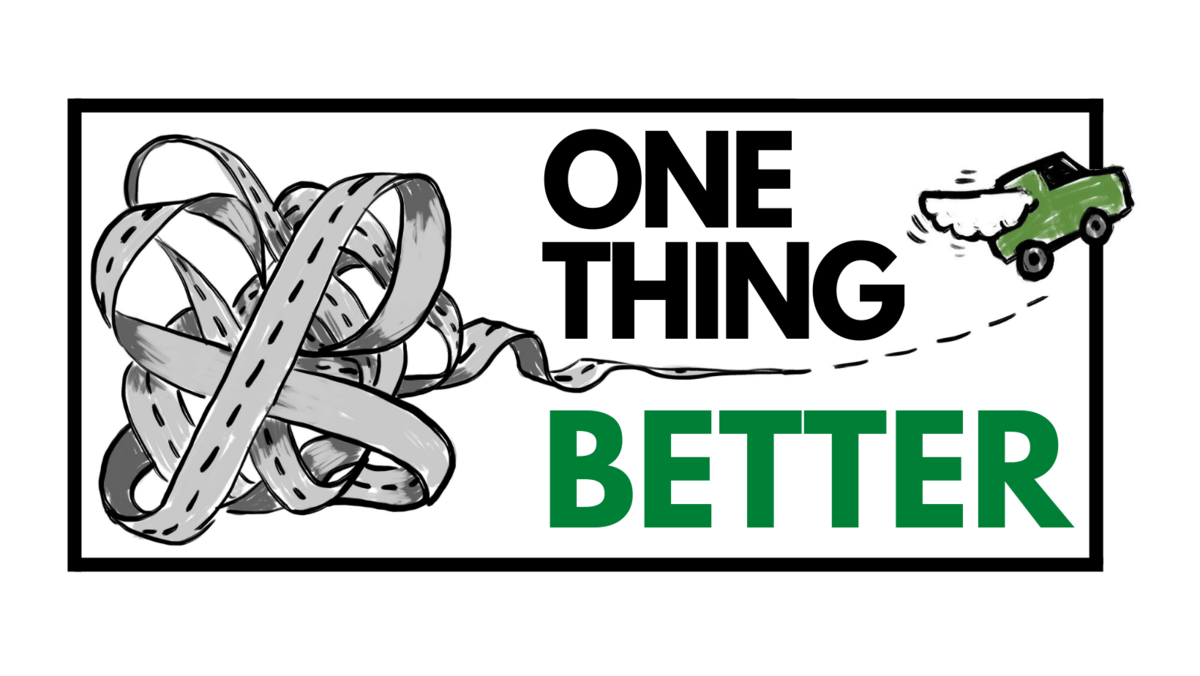- One Thing Better
- Posts
- How to Be Productive Without Burning Out
How to Be Productive Without Burning Out
A new way to think about getting things done.

Welcome to One Thing Better. Each week, the editor in chief of Entrepreneur magazine (that's me) shares one way to level up — and build a career or company you love.
Today's one thing: Being productive.
That one thing, better: Rethink what counts as "productive."
Here’s a question you probably never pause to consider: What does productivity actually mean to you?
Like, literally? What does it mean to have a productive day?
I’ll tell you my answer, which is typical: “Productivity” means I complete a list of tasks. That’s because I organize my work life around my to-do list, and I’ve always felt productive when I can check a bunch of them off.
But what if… there’s another way to look at it?
“To me, productivity is about energy management — not time management,” says Katherine Morgan Schafler, a psychotherapist and author of the great new book The Perfectionist’s Guide to Losing Control.

I interviewed Katherine recently and was blown away by this thinking. I have repeated it at least 10 times in the past few weeks, as I speak to friends who are (like me) stressed and juggling too much. And I am now very excited to repeat it to you.
To begin, let’s consider the days when we are not productive. Why didn’t we finish more tasks?
“It's not really because we run out of the time to do them,” Katherine says. “We don't do them because we run out of the energy to do them.”
That’s why we must reframe our idea of “productivity.” Like she said above: What if productivity is about managing your energy, not just about managing your time? What if it’s about doing things to keep ourselves functional tomorrow — not just burning ourselves out trying to maximize today?
When we think this way, many “unproductive” things suddenly become productive. Sleep is productive. A bike ride in the middle of the day is productive. An unusually long, meandering phone call with a friend is productive. “Just one hour of premium quality energy,” Katherine says, “is going to serve you better than 10 hours spent doing something resentful, rushed, exhausted, confused, disoriented in some way.”
That only half blew my mind.
Here’s what really exploded it in a million pieces.
When Katherine told me all this, I replied: Look, this makes a lot of sense. I relate to it. But also, people are busy because they have many responsibilities. If you’re building a career, or you have a company, then you might have 12 hours to complete 14 hours’ worth of tasks. If you don’t do them, things break. People are disappointed, or worse. So what is someone supposed to do when they feel this crushing weight of responsibility, and the only way to get things done is to relentlessly do them, and there is just no time to care about energy?
And here is what Katherine said in response:
“What's the point of building something if you can't maintain it?”
That is the line I’ve repeated over and over to my stressed friends. It’s so good I’m just going to type it again:
What's the point of building something if you can't maintain it?
Just the other day, I was at a bar with a friend who writes a successful newsletter. He’s stretching himself incredibly thin. He has new ideas for products — including one that I think can make him a lot of money, and save him a lot of time, and make his life a lot more manageable. But he struggles to actually explore this great new idea, because he’s so consumed with other commitments that make him small amounts of dollars. He doesn’t want to give any of it up, even as he reaches a breaking point.
To which I said, with credit to Katherine: What's the point of building something if you can't maintain it?
My friend paused. “You’re right,” he said.
Are there times when we must work hard? Work to exhaustion? Sure. But the point is to build a system — or at least, make sure we're building toward a system — that doesn't demand relentlessness. The point is to build something we can maintain.
If you're reading this, it's probably because you are a task-oriented person. I am too. I don't think a lot about energy, truth be told. But I heard Katherine's words when I needed them — because I have been working nearly nonstop since my book launch this past September, and that meant seeing fewer friends, and taking fewer walks, and reading fewer things, and I once thought I could do this forever if needed to, but I was starting to realize that I couldn't, and now it also occurs to me that I don't have to. So in the past month or two, I've had lunch with old and new friends — right there, in the middle of the afternoon, while tasks could otherwise be completed! I have taken hour-long walks. I have just... taken some time. It has proven productive.
Today, tomorrow, two days from now, whenever you can manage it — step away for a moment. Do something that doesn’t feel “productive.” And then tell yourself: This is productive.
That’s how to do one thing better.
More things better:
Katherine has a chapter about this in her great book, The Perfectionist's Guide to Losing Control. (10/10 would recommend)
She credits the idea to what she calls “a life-changing article” by Tony Schwartz and Catherine McCarthy.
I included her advice with a few of my own time-management tips in this episode of my podcast.
Let's Connect!
New to the newsletter? Subscribe here:
💌 What do you think? Let me know!
📕 Order my book to future-proof your career!
🎧 Latest podcast: How to Write a Bestselling Book